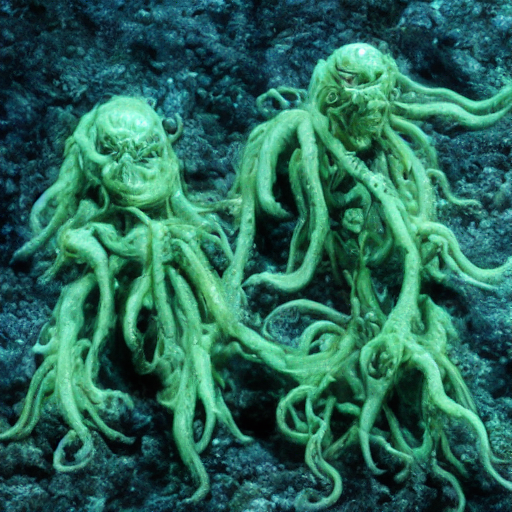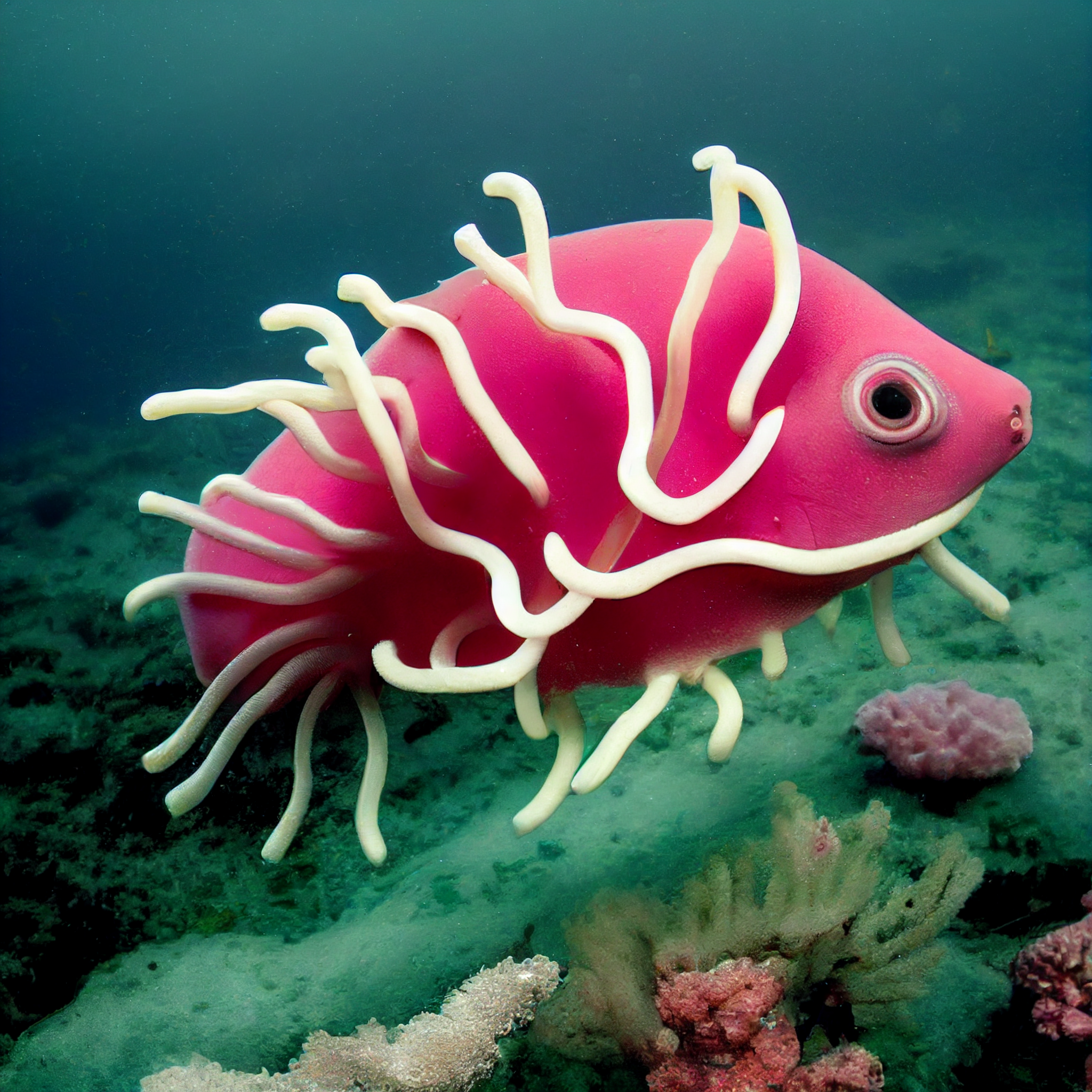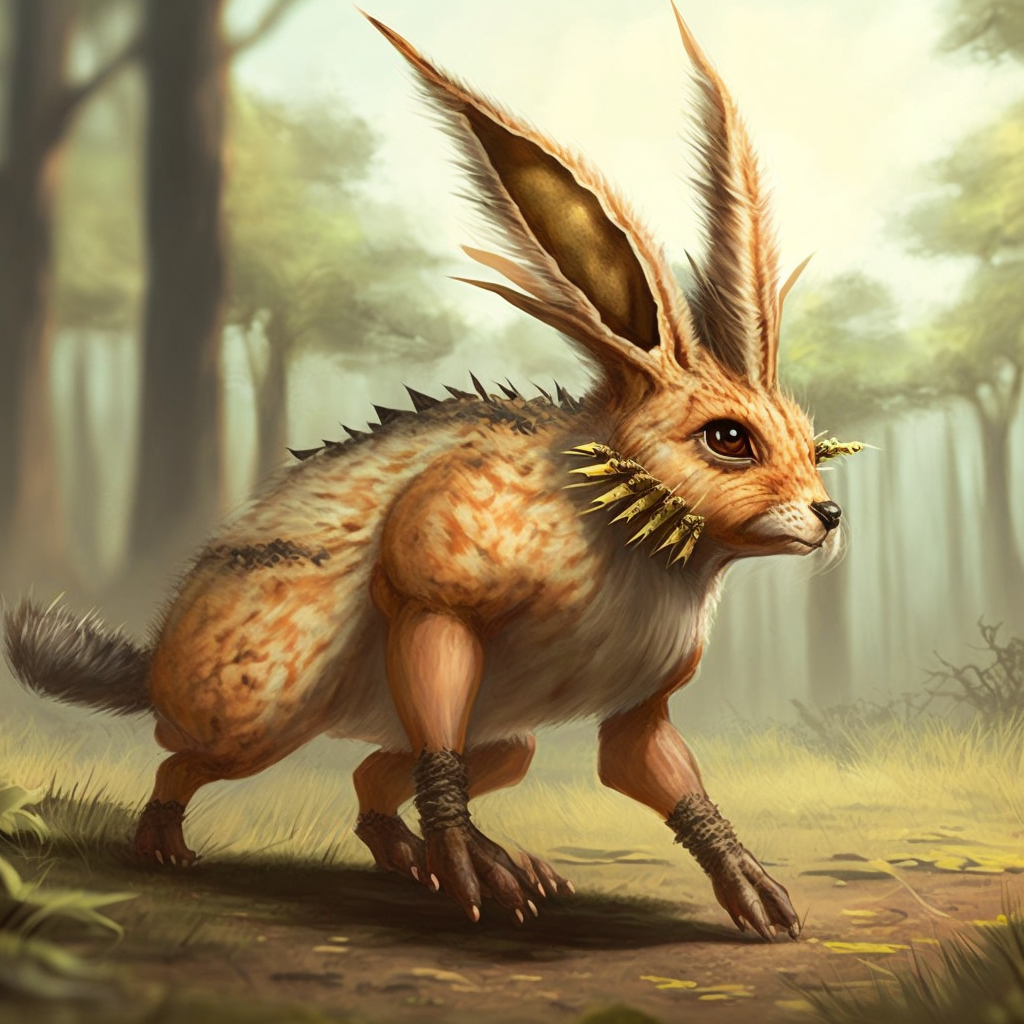

The oceanstar is a common salt-water marine mollusk. Oceanstars got their name from sailors who could just barely make out twinkling lights beneath the ocean waves in the pitch of night. Oceanstars are herbivores that feed on microplants and detritus that settle along the ocean floor. Although oceanstars are beautiful to look at from afar, touching one may permanently damage its ability to emit light.
Explore an endless universe of ficticious life on NovelGens.





